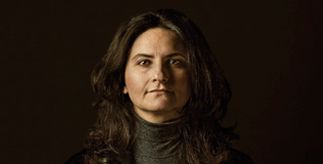Cancer immunotherapy represents one of the most exciting and promising approaches to treating cancer since the discovery of chemotherapies over 60 years ago. The University of Birmingham are among the leaders of this fast evolving field, which is helping to save lives.

Birmingham Heroes: Benjamin Willcox
What is Cancer Immunotherapy?
For many years, chemotherapy has been the most effective way to treat cancer. But it also has dangerous side effects, including the possibility of infection and secondary cancers.
Unlike with other infections, when people develop cancer their immune systems are unable to fight it off on their own. Until recently, we didn't know why.
The exciting discovery came when scientists learned that cancer cells actually have molecules on their surface that prevent the immune cells from recognising them as a threat - a disguise of sorts. Because of this, cancer is allowed to spread.
Some years ago, researchers had the idea of using immunotherapy to block these molecules that allow cancer to hide. The immune cell can then recognise and destroy the cancer. This approach has many advantages including:
- It’s specific - Immunotherapy targets cancer cells not healthy cells, meaning that some immunotherapy drugs offer fewer side effects than traditional treatments
- It’s effective - It systematically attacks cancer cells throughout the body providing powerful, targeted treatment.
- It’s long lasting - It trains the immune system to remember cancer cells.
- It’s universal - Immunotherapy can be applied to nearly all types of cancers
Real life impact
Gary Middleton
Professor of Medical Oncology at the University of Birmingham
“One of my patients came to me with advanced lung cancer - it had spread to her bones. We tried chemotherapy, but she was getting worse. She had developed multiple secondary cancers and a large cancerous lump in her neck.
Sadly, I had to tell her that I believed she had less than three months left to live. Then we tried one of the new immunotherapy treatments.
Two weeks later, she came in for a check-up. The cancerous lump on her neck had completely disappeared. After two weeks!”

Professor of Molecular Immunology, Institute of Immunology and Immunotherapy

Professor of Medical Oncology, Institute of Immunology and Immunotherapy

CRUK New Investigator Fellow, Institute of Immunology and Immunotherapy
Find out more
Institute of Cancer and Genomic Sciences ➤
Institute of Immunology and Immunotherapy ➤
Learn about our other Birmingham Heroes ➤